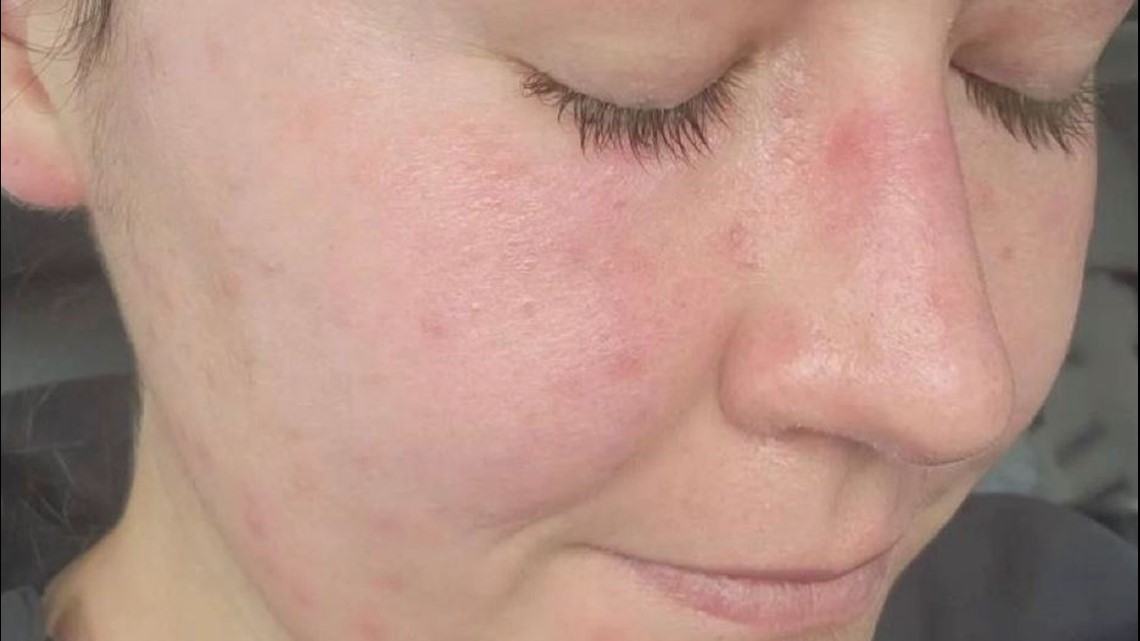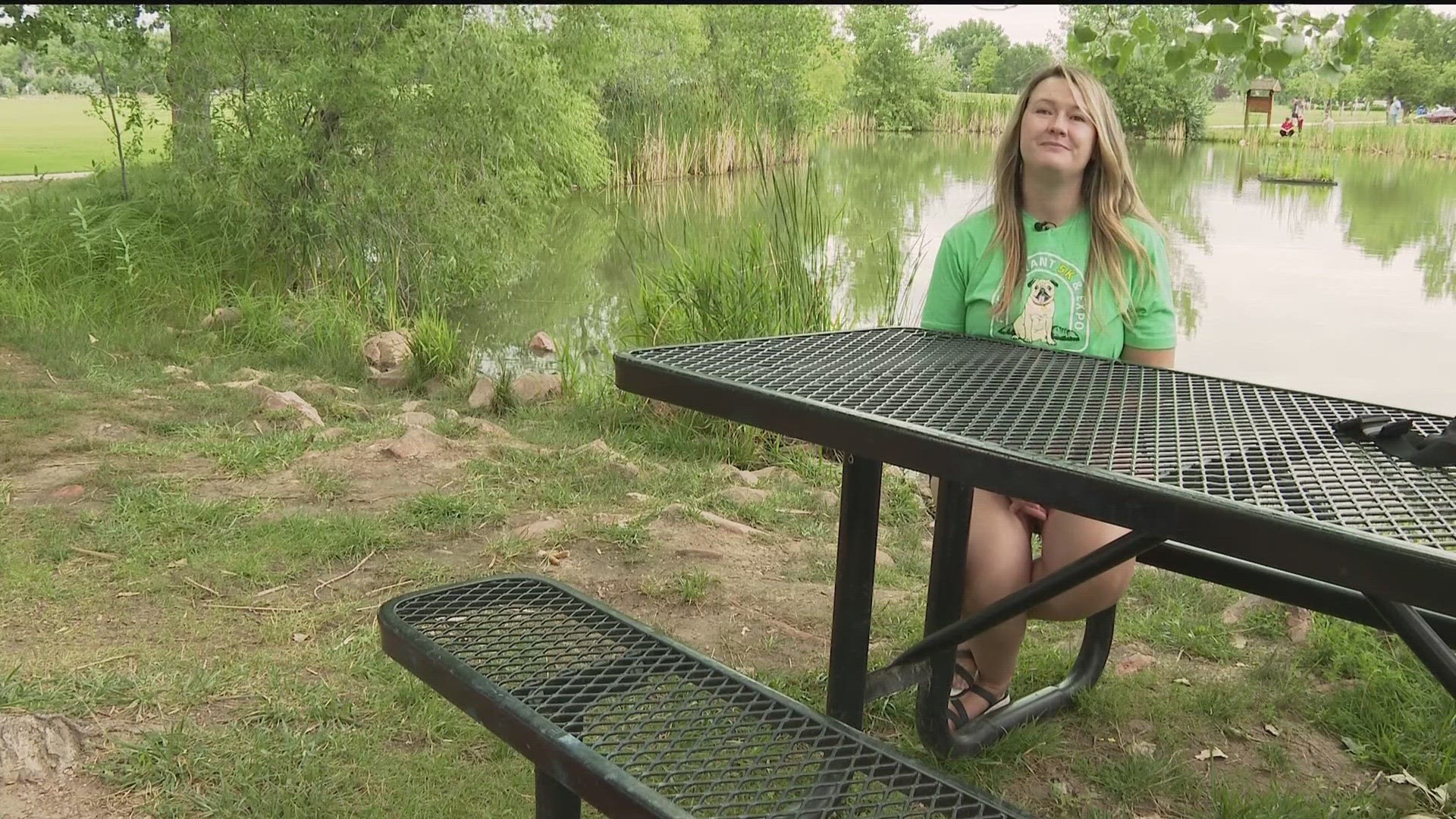WINDSOR, Colo. — A high level of mosquito activity this summer means a rise in West Nile virus.
On Thursday, Denver's health department confirmed three cases of West Nile. According to the Colorado Department of Public Health and Environment, 36 cases have been reported statewide this year so far.
"You know I love to do fishing and being outdoors, but we tend to kind of stay away from this," Lisa Montez said as she pointed at a small lake in northern Colorado on Sunday. "There’s a way to mitigate risk, and that's staying away from risky areas like this."
Montez once loved being outside, but that all changed in July 2022, when she was diagnosed with West Nile virus.


"I had the rash, I had the flu-like symptoms, but instead of getting better like most people do, you feel crappy for a few days, I did not get better. I ended up getting worse and worse and worse," she said.
According to CDPHE, 206 cases were reported in 2022. CDPHE data indicates 20 of those cases resulted in death, 143 people were hospitalized and 120 cases were neuroinvasive, meaning it impacted the nervous system. Montez was one of them.
"It was almost immediate. We went from being completely healthy and fine and normal to not -- to completely opposite," she said.
Montez said in addition to the rash and migraines, she struggled with balance and with driving. She recently started driving after taking a year off because of her symptoms.
Since her diagnosis, she said she has made it her mission to educate others about a virus she once knew so little about. Recently she was honored at a Colorado Rockies game for her efforts in spreading awareness.
"Prevention is prevention, but it's always in the back of mind that it just takes one mosquito bite to change your life," she said. "It really is worth the two minutes to spray on mosquito spray before you go out. It took an entire year of my life and foreseeably more. Two minutes is worth it."
There is no treatment, cure, or human vaccination for the virus. Montez hopes that eventually changes.
The Denver Department of Public Health and Environment recommends residents take the following precautions to help protect against the virus:
- Stop mosquitoes from laying eggs in or near water on your property.
- Once a week, empty and scrub, turn over, cover or throw out items that hold water, such as tires, buckets, planters, toys, wheelbarrows, pools, birdbaths, flowerpots, or trash containers.
- Check for water-holding containers both indoors and outdoors.
- Do not water your cement or the street. It can result in pools that support larval mosquitoes.
- If you are making landscape decisions, consider ways to minimize overspray (of irrigation) to streets and gutters.
- Use Environmental Protection Agency-registered insect repellents with DEET. When used as directed, EPA-registered insect repellents are proven safe and effective, even for pregnant and breastfeeding women.
- Avoid activity outdoors from dusk until dawn.
- When outdoors, wear loose-fitting, long-sleeved shirts and pants.
- Use mosquito repellent as well as candles, incense, and other means to deter mosquitos from your vicinity.
- Use screens on windows and doors. Repair holes in screens to keep mosquitoes outdoors.
While everyone is at risk of being infected with West Nile, people over 50 years old, or with weakened immune systems, are at greater risk of developing serious illness, the health department said.
SUGGESTED VIDEOS: Latest from 9NEWS

